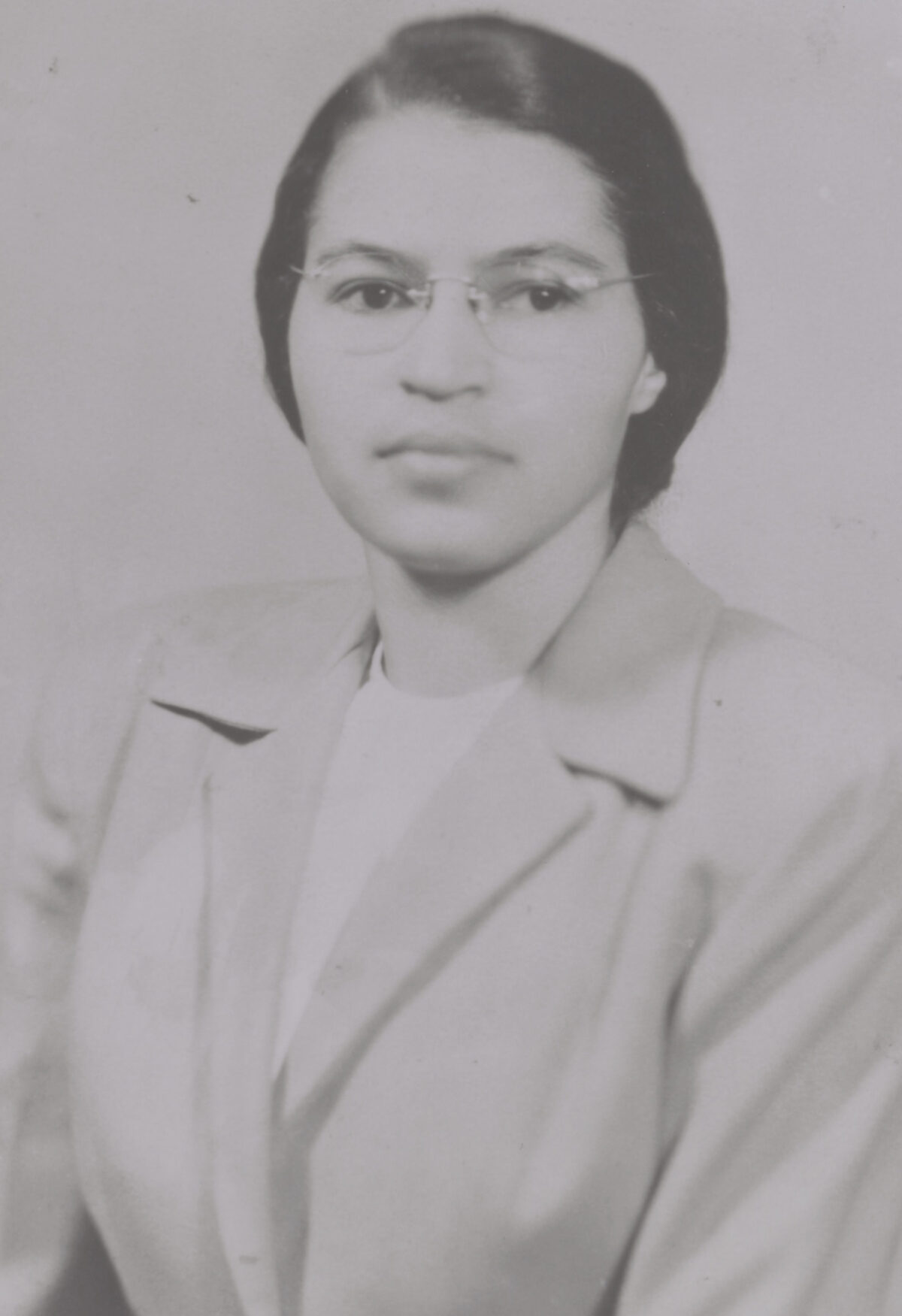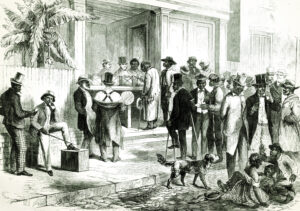Gwen Ifill talks with biographer Jeanne Theoharis, whose book The Rebellious Life of Mrs. Rosa Parks offers a complex portrait of the woman best known for refusing to give up her seat on an Alabama bus in 1955.
Parks had been thrown off the bus a decade earlier by the same bus driver — for refusing to pay in the front and go around to the back to board. She had avoided that driver’s bus for twelve years because she knew well the risks of angering drivers, all of whom were white and carried guns. Her own mother had been threatened with physical violence by a bus driver, in front of Parks who was a child at the time. Parks’ neighbor had been killed for his bus stand.
Parks and her husband lost their jobs after her stand and didn’t find full employment for nearly ten years. Even as she made fundraising appearances across the country, Parks and her family were at times nearly destitute. She developed painful stomach ulcers and a heart condition, and suffered from chronic insomnia. Her husband Raymond, unnerved by the relentless harassment and death threats, began drinking heavily and suffered two nervous breakdowns. The black press, culminating in JET magazine’s July 1960 story on “the bus boycott’s forgotten woman,” exposed the depth of Parks’ financial need, leading civil rights groups to finally provide some assistance.
Parks spent more than half of her life in the North. The Parks family had to leave Montgomery eight months after the boycott ended. She lived for most of that time in Detroit in the heart of the ghetto, just a mile from the epicenter of the 1967 Detroit riot. In 1965 Parks got her first paid political position, after over two decades of political work. After volunteering for Congressman John Conyers’s long shot political campaign, Parks helped secure his primary victory by convincing Martin Luther King, Jr. to come to Detroit on Conyers’s behalf. He later hired her to work with constituents as an administrative assistant in his Detroit office. For the first time since her bus stand, Parks finally had a salary, access to health insurance, and a pension—and the restoration of dignity that a formal paid position allowed.
Parks was a lifelong activist and a hero to many, including Nelson Mandela. After his release from prison, he told her, “You sustained me while I was in prison all those years”.





